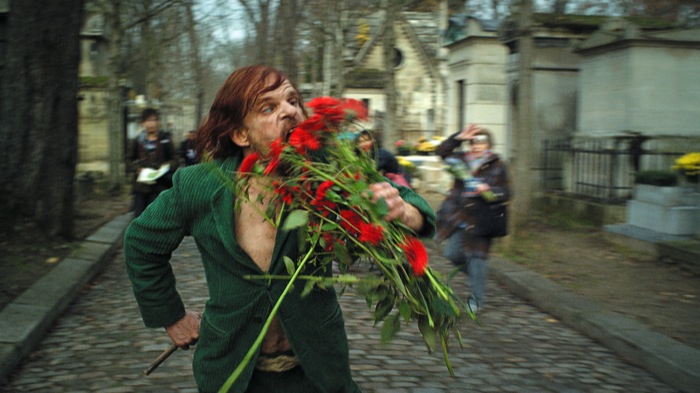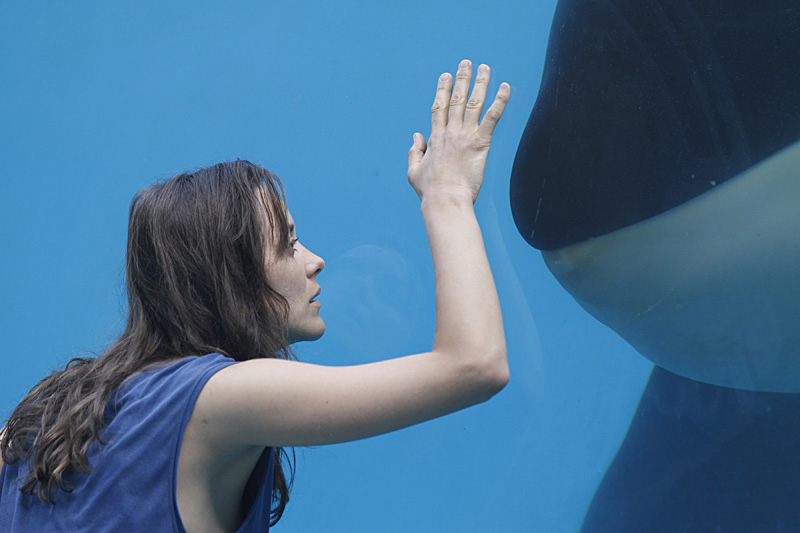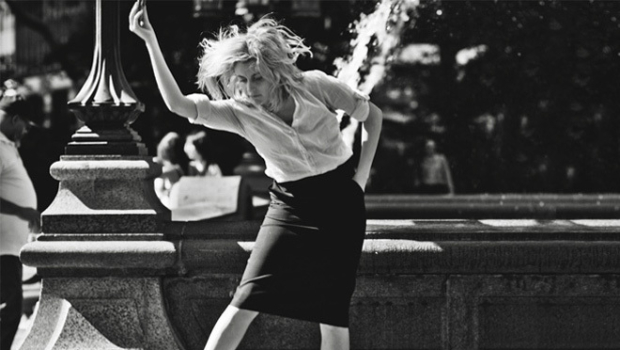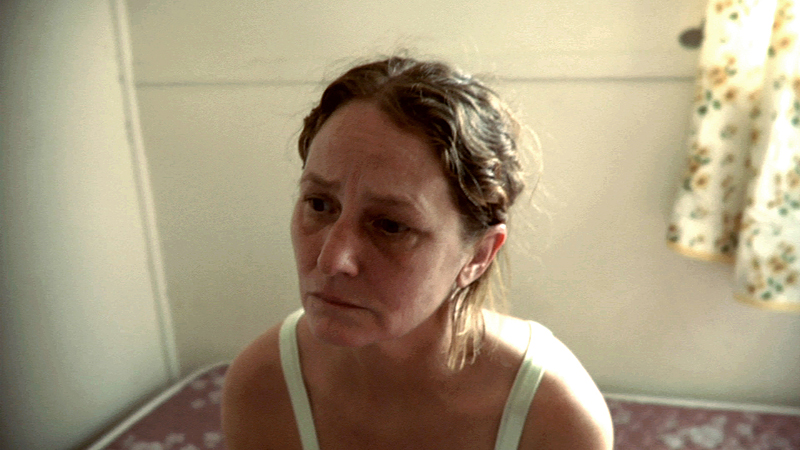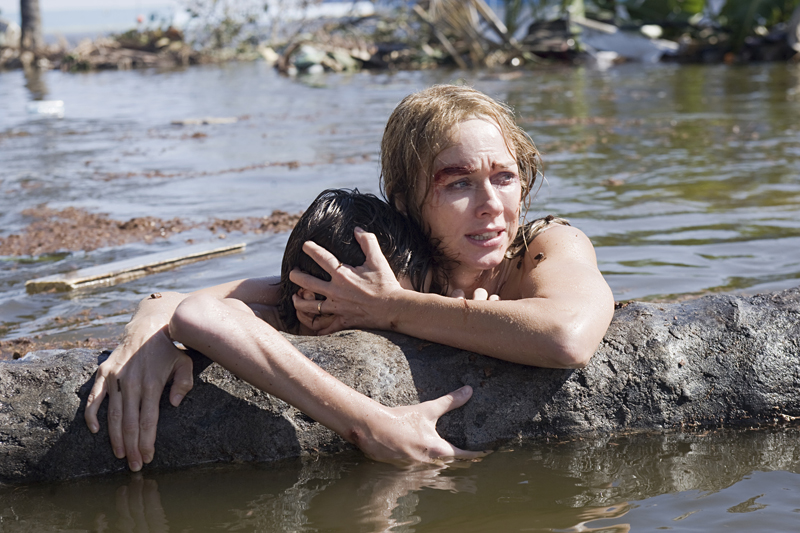Unclassifiable, expansive, and breathtaking, Leos Carax’s Holy Motors stars Denis Lavant, the simian, sinewy actor who played the lead in Carax’s first three movies, as a character named Oscar who inhabits nearly a dozen different personas over the course of a day. Steered through the streets of Paris in a white stretch limo by chauffeur Céline (Edith Scob), Oscar consults a dossier for the particulars of his next “appointment.” These scenarios require him to play, among others, a homeless old woman shaking a tin cup, a performer bending and contorting for a motion-capture sex scene, and a feral leprechaun (a reprise of Lavant’s character in Carax’s contribution to the 2008 omnibus film Tokyo!) terrorizing a fashion shoot, absconding with a top model (Eva Mendes) in whose lap he is soon cradled, stark naked and sporting a ramrod erection. Oscar pursues this exhausting work for “the beauty of the act,” as he explains to a mysterious exec (Michel Piccoli). “Beauty is in the eye of the beholder,” the suit responds—to which Oscar asks, “And what if there’s no more beholder?” As Oscar’s night begins to wind down, he sees Jean (Kylie Minogue, transcendent), a woman he once loved dearly, who is engaged in the same kind of shape-shifting work as he is. Jean breaks into song: “Who were we/When we were/Who we were/Back then?” Co-written by Carax, the lyrics circle back to an ever-present past; the linguistic construction of the song’s opening lines seems, like Oscar himself, to be in constant flux, always slipping just out of our grasp. If there’s no more beholder, how will we know what we were?
Holy Motors: Leos Carax’s Unclassifiable Comeback
